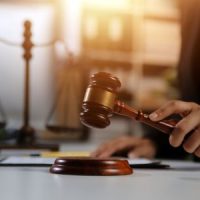What To Know About Problem Solving Courts

People might tell you that the purpose of the criminal courts is not to punish people, but it does not feel that way when you are facing charges that can result in monetary fines, probation, or even prison time. Likewise, no one falls for it when prisons bear signs with euphemisms like “correctional facility.” When you get accused of a crime, your aim is to emerge from the experience with as little punishment as possible, or to avoid punishment completely if there is any chance of that happening. You can call a lawyer promptly and try to smooth things over. If that does not work, you can go for broke and try to get the jury to acquit you at trial. What if the arrests are just part of an ongoing pattern? When you are struggling with addiction, homelessness, or similarly disruptive chronic problems, all the criminal cases simply sap your already limited resources. Spending a few months or more behind bars seems inevitable, and part of you hopes that it will give you a reset, even though that is not what happened last time. The court system in Florida eventually recognized this, and now some arrests do not go through the conventional process of entering a plea and then accepting a penalty, unless you are lucky enough to get acquitted. Here, our Miami drug crimes defense lawyer explains the various problem solving courts in South Florida and how they can help you avoid criminal penalties, even when it is obvious to everyone that you broke the law.
What Are Problem Solving Courts?
Problem solving courts are now a nationwide phenomenon, but the first problem solving court in the United States was established right here in Miami. Florida’s first drug court began operating in what was then known as Dade County in 1989. It was open to people facing drug possession charges, if these defendants did not have a prior criminal record. The idea is that the best way not to get repeat convictions is to not get a first conviction, and if drug court could help people quit drugs, it could help them avoid a lifetime of involvement with the criminal justice system. A sizable portion of the drug court cases in Miami and in similar programs that sprang up elsewhere were for cannabis. Now that, in Miami and many places in the United States, it is legal for adults above the age of 21 to possess small quantities of cannabis, drug courts still provide necessary services, especially now that the opioid epidemic has taken root.
In drug courts and other problem-solving courts, the goal is to address the circumstances that led to the offense and the arrest. Therefore, instead of going to jail, the person must attend addiction treatment or mental health counseling. If the participant is homeless or at high risk of homelessness, the problem-solving court may connect him or her to stable housing. Upon successful completion of the program, the court drops the charges.
Problem Solving Courts in South Florida
Today, almost every county in Florida has at least one problem solving court. The only ones that do not are Glades, Highlands, Walton, and 11 counties in the eastern panhandle. Miami-Dade County has the following problem-solving courts in operation as of June 2025:
- One adult drug court
- One veterans’ court
- One dependency drug court
- One juvenile drug court
- Two adult mental health courts
- One early childhood court
Broward County also has at least one of each of those kinds of courts. Palm Beach County has one each of the problem-solving courts that Miami-Dade County has, except that it does not have mental health courts.
You Need a Criminal Defense Lawyer Even If Your Case Is Eligible for Problem Solving Court
When you are overwhelmed with all the problems that led to your arrest, it is not easy to navigate the process of getting into a problem-solving court. Remember that everyone who gets formally accused of a crime has the right to representation by a criminal defense lawyer. Your lawyer can do more than just prepare show-stopping arguments to get you acquitted at trial; that is not how most criminal cases go. Your lawyer can help you focus your efforts on getting accepted to drug court and getting through the program successfully.
Contact Our Criminal Defense Attorneys
A South Florida criminal defense lawyer can help you go through a problem-solving court to emerge from your case without a criminal record. Contact Ratzan & Faccidomo in Miami, Florida for a confidential consultation about your case.
Source:
flcourts.gov/Resources-Services/Office-of-Problem-Solving-Courts
